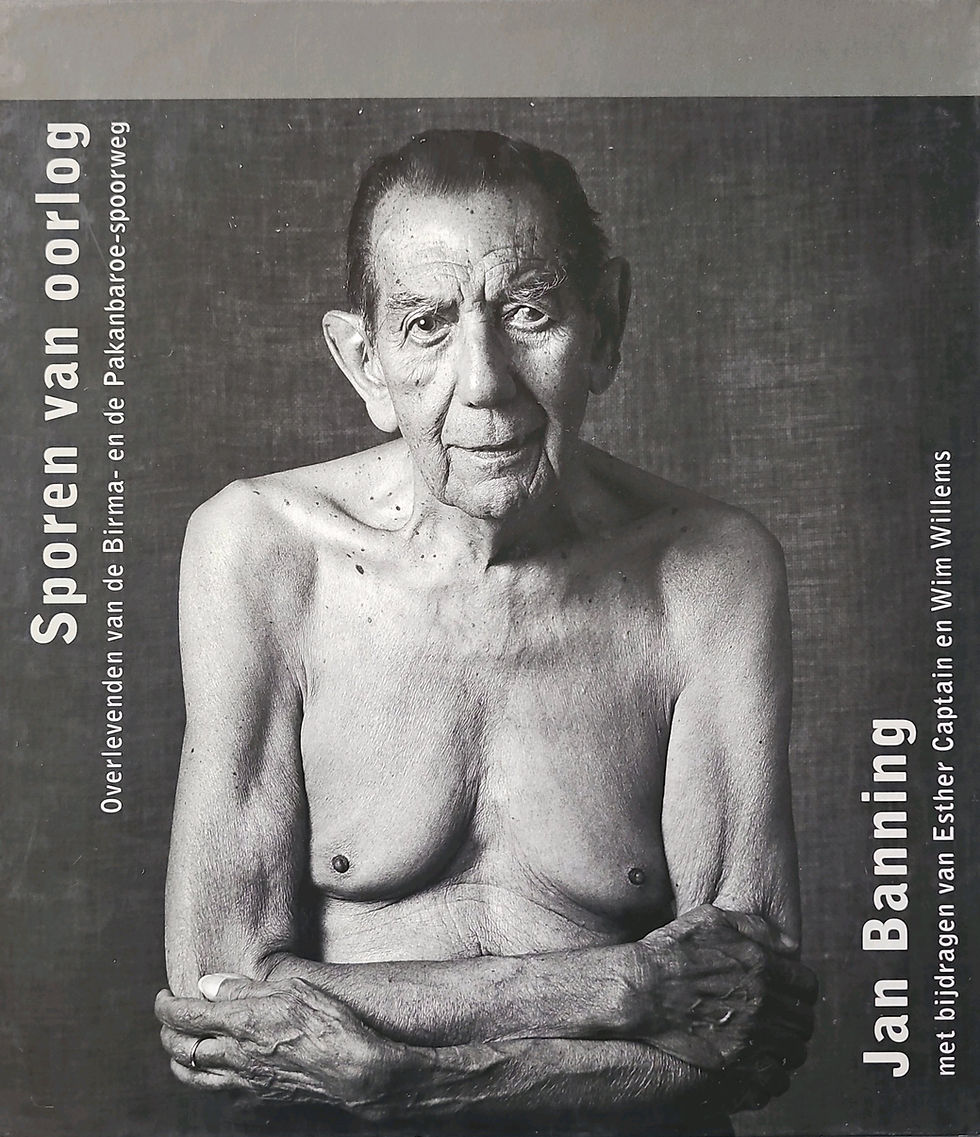#21 Legacy of photographers
- 17 nov 2019
- 4 minuten om te lezen
Bijgewerkt op: 17 nov 2019

Speaking: Jo Brunenberg and Ton Huijbers
The exhibition ‘Pierre Segers. Looking for times lost’ is the reason for organizing a discussion about the legacy of photographers.
After Pierre Segers (1935-2016) deceased, a group of friends took care of his photos.
"Pierre Segers had indicated during his life that after his death his photos would go to me," says Jo Brunenberg. “However, that was only agreed verbally. Fortunately, Pierre himself had made a selection of what he considered his best work. Everything that was in passe-partouts had in fact already been selected by him. Ton Huijbers and I made an exhibition, a book and a film. After the exhibition at Pennings Foundation, the photo archive of Pierre Segers will be housed at Gemeentemuseum Weert.”

Jo Brunenberg and Ton Huijbers wrote this text for the exhibition:
This photographer cannot be found on the internet, nor in overviews of Dutch photography. Only in a few publications from the seventies you can still come across his work. He grew up in a small Limburg village near the border where he continued to live his entire life. In this closed community, his fellow villagers usually did not get much farther from home than family visits in the immediate vicinity, but that did not apply to the photographer Pierre Segers.
He made his most important work in the seventies and eighties, times of great contradictions in Europe. On the one hand the Europe with communism and dictatorships and on the other hand the Europe where in countries like the Netherlands and France the sexual revolution, the secularization, democratization and emancipation of women caused major changes.
In the early 1970s, Pierre Segers often traveled with his ‘deux chevaux’ through Romania, behind the ‘Iron Curtain’, to photograph villagers, farm workers and gypsies. It was before the time that dictator Ceauşescu wanted to demolish eight thousand villages.
In remote areas in France, Pierre Segers photographed people in sleepy villages, as well as in Spain where dictator Franco ruled hard. And there, behind closed doors, people entrusted the photographer that they had an aversion to ‘El generalísimo’ and to the Catholic Church.
The sexual revolution, including the groundbreaking, explicitly erotic work of a photographer like Robert Mapplethorpe, also encouraged Pierre Segers to take bold photographs of male nude, partly on the popular and special Polaroid SX70 material at the time.
The photographic legacy that Pierre Segers left behind is too special to be forgotten. That is why there is now an exhibition with vintage prints and a book of his work that does justice to his photographic legacy. As a homage to him, the two befriended photographers have published a book and made a short film (15 minutes). ‘Photographic travel notes made by fellow travelers of Pierre Segers’ (Ton Huijbers, Jo Brunenberg, Pieter Heijnen and Theo Derksen) are also shown on the screen in the exhibition.
(In June 2003, Pierre Segers and Ton Huijbers, together with Harry and Françoise Pennings, visited the photo festival of Lannion in France. See blog # 4)

Well, not every photographer encounters such a dedicated circle of friends. That is why the Pennings Foundation is organizing a discussion on Saturday 23 November about the legacy of photographers.
The purpose of this discussion is:
Make it negotiable as a photographer what should happen to your photo archive when you are no longer there. As a photographer, make a selection yourself; don't leave that to your relatives. Who will be responsible for your archive? If desired and if possible, contact archives where (a selection of) your photos can be stored. What options are there?
In 2015, Bas Veldhuizen of bkkc (now: kunstloc) organized a symposium about the legacy of artists. See the links at the bottom of this blog. The Pennings Foundation now focuses specifically on photographers. Bas Veldhuizen will be present.
The program for November 23
The following speakers have been invited:
• Jo Brunenberg and Ton Huijbers - the friends of Pierre Segers
To save Pierre Segers' photo archive, they have taken various initiatives: an exhibition, a book, a film. The photo archive will be housed at the Gemeentemuseum Weert.
• Emy Thorissen - the Brabant Collection of Tilburg University
The Brabant Collection manages photo archives of a number of photographers who have lived and worked in Brabant. Which photo archives does the Brabant Collection already manage and how is the selection made? The way the Nederlands Fotomuseum acts on a national level, the Brabant Collection acts on a provincial level.
• Peter van den Doel and Eduard de Kam - Stichting 1000 foto’s
1000 photos is a digital archive where professional photographers can place photos, up to a maximum of 1000 photos. How is the selection made?
In addition, the following are interviewed:
• Tjabine Guntlisbergen
She made an effort to obliterate her father's photo archive, Harry Guntlisbergen. The photo archive has recently been transferred to the Brabant Collection.
• Photographer Piet den Blanken
For decades he worked as a photographer for the Brabant Press. In addition, he made countless journeys to document social injustice. He is currently making a selection of his archive that will eventually be transferred to the Brabant Collection.

The exhibition ‘Pierre Segers | Looking for times lost’ is on show at Pennings Foundation until December 7, 2019.
The discussion afternoon on the photographers' legacy will be organized on Saturday afternoon, 23 November 2019, from 14:00 to 16:00. Entrance is free. Please register:
Read about the symposium that bkkc organized in 2015 about the legacy of artists:
Read the report of the symposium here:
In the following blog: report of the discussion about the legacy of photographers.




Opmerkingen